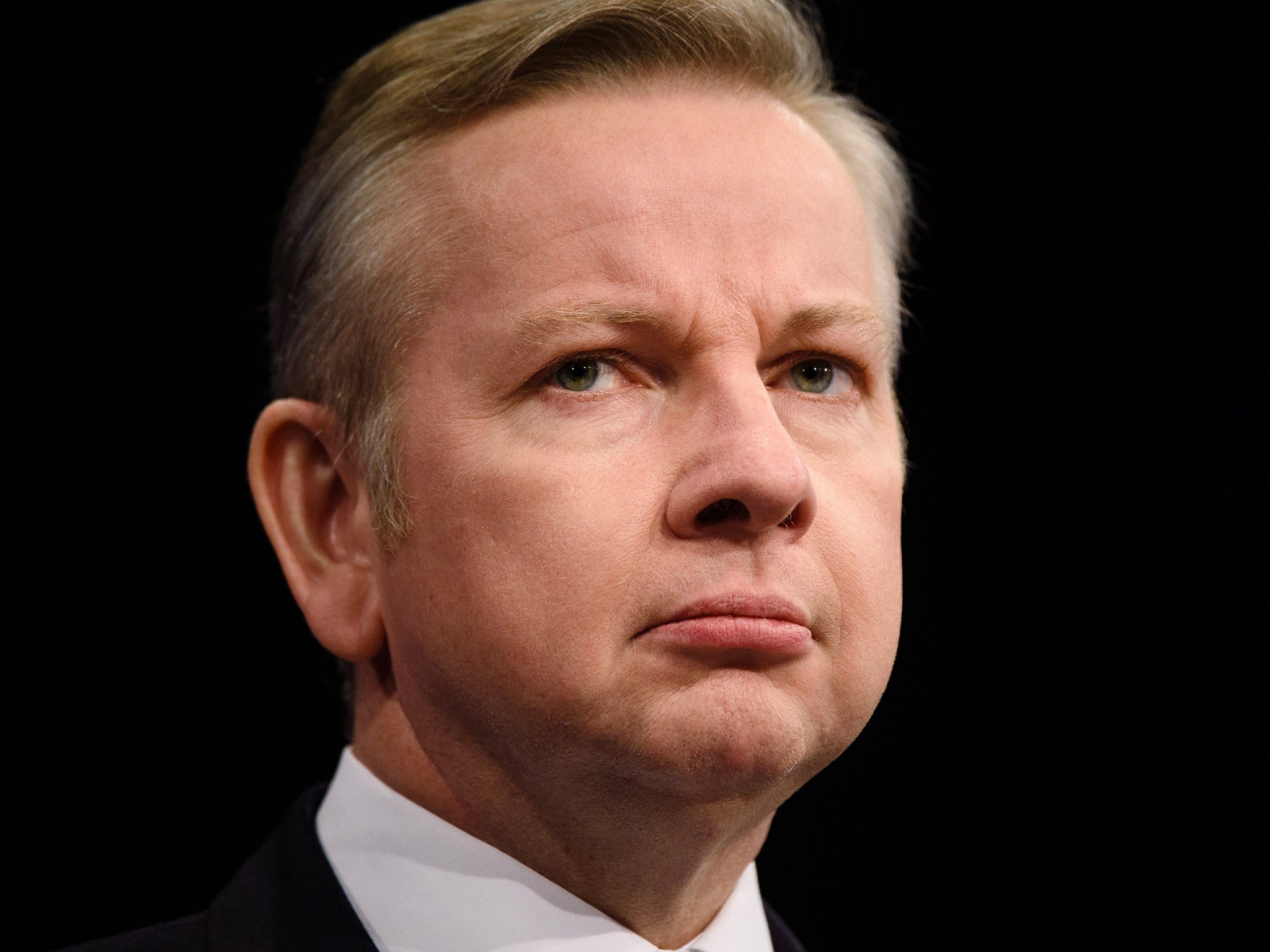Criminal courts charge: Conservative MPs join protests against controversial levy
Michael Gove is urgently reviewing the policy following criticism that charge is being levied on penniless minor offenders

Your support helps us to tell the story
From reproductive rights to climate change to Big Tech, The Independent is on the ground when the story is developing. Whether it's investigating the financials of Elon Musk's pro-Trump PAC or producing our latest documentary, 'The A Word', which shines a light on the American women fighting for reproductive rights, we know how important it is to parse out the facts from the messaging.
At such a critical moment in US history, we need reporters on the ground. Your donation allows us to keep sending journalists to speak to both sides of the story.
The Independent is trusted by Americans across the entire political spectrum. And unlike many other quality news outlets, we choose not to lock Americans out of our reporting and analysis with paywalls. We believe quality journalism should be available to everyone, paid for by those who can afford it.
Your support makes all the difference.Conservative MPs have joined the protests against the criminal courts charge as Michael Gove hinted that judges and magistrates could be given discretion over whether to waive the penalty.
The Justice Secretary is urgently reviewing the policy following sustained criticism that the charge, which can range from £150 to £1,000, is being levied on penniless minor offenders and could encourage people to plead guilty to crimes they did not commit. Officials in the Ministry of Justice are examining ways of softening the impact of the penalty which they acknowledge has had perverse effects.
The charge, introduced by the former Justice Secretary Chris Grayling, came into force earlier this year. It has to be imposed on anyone convicted in a court to help pay towards the costs of their upkeep. If someone pleads guilty the charge – which comes on top of fines and costs – is £150. But if they plead not guilty and are subsequently convicted then it rises to £1,000. Critics argue that this is encouraging innocent people to plead guilty. The charge is not means-tested or adjusted for the seriousness of the crime, which means minor offenders convicted of petty thefts are being hit with a cost disproportionate to their crime, campaigners say.
Bob Neill, the Tory chairman of the Commons justice select committee, warned the charge was not raising as much money as the Ministry of Justice originally hoped.
“[The Ministry] already accepts it probably will have lost money in its first year,” he told The Independent. “Because so much has actually not been collected it’s not bringing in anything much as it was supposed to raise.”
The collection costs were eroding the cash received from a charge “which so many people are simply unable to pay and is so long-winded to collect”, he added.
In the Commons, the MP for South Thanet, Craig Mackinlay, told Mr Gove that the system was “wholly despised” by magistrates. He said: “The concerns go beyond inherent unfairness – there are worries that bailiffs will chase debts that will simply be written off and never collected.”
Alex Chalk, the MP for Cheltenham, suggested that judges and magistrates should in the short term be given discretion over applying the charge until the review of the charge had been concluded.
Mr Gove replied: “You make a valuable submission which I shall reflect on.”
He accepted that the charge was a “cause of concern across the House”, but stressed it was “important we maintain a balance between the funding of our courts coming from the taxpayer and coming from those who use our courts”.
Andy Slaughter, the shadow Justice Minister, told Mr Gove: “You don’t need to review the charge; it’s worthless as well as dangerous. Shouldn’t you just scrap it now?”
Mr Gove replied: “I believe in evidence-led policy and one of the things that I think it’s important that we should do is look at the evidence, not just from the magistracy but also in terms of collection rate.”
Meanwhile fresh evidence of the charge being levied against destitute offenders has emerged.
In Derby, a 38-year-old man, Matthew Carter, was fined £305, including a £150 criminal courts charge, for begging. In Coventry, Andrew Melvin, 36, of no fixed address, was fined £255, including a £150 criminal courts charge, for the same offence.
Andrew Neilson, director of campaigns at the Howard League for Penal Reform, said: “The damaging consequences of this unfair and unjust charge are becoming clearer by the day. Ordering indigent people to pay money they simply don’t have is never going to work. The charge must go.”
Join our commenting forum
Join thought-provoking conversations, follow other Independent readers and see their replies
Comments